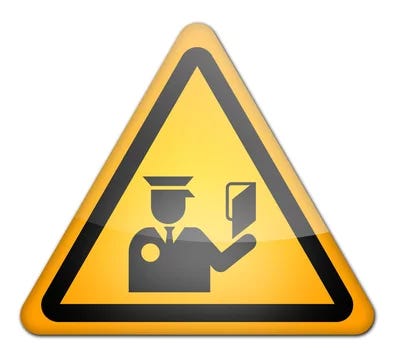I was thinking about Digital Identities, and the pathocracy’s attempt through the UN to force digital identities on people. I wrote briefly about it earlier.
The question is not “Who does this digital identifier describe?”, but “What can you do with this digital identifier?”.
If you ran across an old picture ID of yours, found it in a drawer somewhere, is that you? Did you know then what you know now? Can you do now what you did then? Do you care now for who you cared for then? Would someone who knows you now recognize the person you were then? In what context, among what people?
Presumably the more information associated with a digital id, the better the approximation of the description. Maybe it would include version information. Me 1.0, me 1.01, Me with These Friends 1.2, Me with Those People 1.2, etc. Maybe it would include a version control file with all the versions and vectors between them could be figured.
The fact is that no information associated with any digital identifier can completely describe us. The closest thing would still be an approximation. But the better the approximation, the more powerful it is, the more unreasonable is the search, and the more harm it can do. History has shown that lists of people are eventually inevitably misused.
What rights do we have against unreasonable searches and seizures online?
I would argue that we have inalienable rights to:
Anonymity, where its appropriate. This “where its appropriate” has to be subject to local laws, where local authority has not yet been smashed by the pathocracy. The right to anonymity is important for whistleblowers, those seeking legal and medical information online, anyone not wanting to be bombarded with ads, and actually anyone at all seeking any information that is legally available.
Be without any computer or digital device. Those who choose to be without computers and such devices must be accommodated.
Be forgotten if one so chooses. If for example, someone no longer wants a driver’s license, the state or any other organization has an obligation to delete the records.
Not be tracked. Its not enough that some individual transactions or searches are private, but the sequence or accumulation of them must also be private. Location information and monetary transactions must never be used to track people who are not being criminally investigated according to legally accepted standards.
Use cash. Cash has built-in anonymity which is essential for privacy.
Not be subject to any kind of medical monitoring. All kinds of tyrannical abuses of people can come under the label of “public health” measures which are actually implemented for quite different reasons.
Not be subject to any kind of energy use or waste generation monitoring. Like tyrannical abuses in the name of public health, many abuses of people can come under the heading of “environmental protection”.
Not be subject to any kind of social credit system for any reason. Social credit systems can and will inevitably be misused for all kinds of tyranny.
The right to be free of unreasonable searches is described in the 4th amendment to the U.S. Constitution, and it should be a guide:
“The right of the people to be secure in their persons, houses, papers, and effects, against unreasonable searches and seizures, shall not be violated, and no Warrants shall issue, but upon probable cause, supported by Oath or affirmation, and particularly describing the place to be searched, and the persons or things to be seized.”


Exactly. Thanks from Oregon.